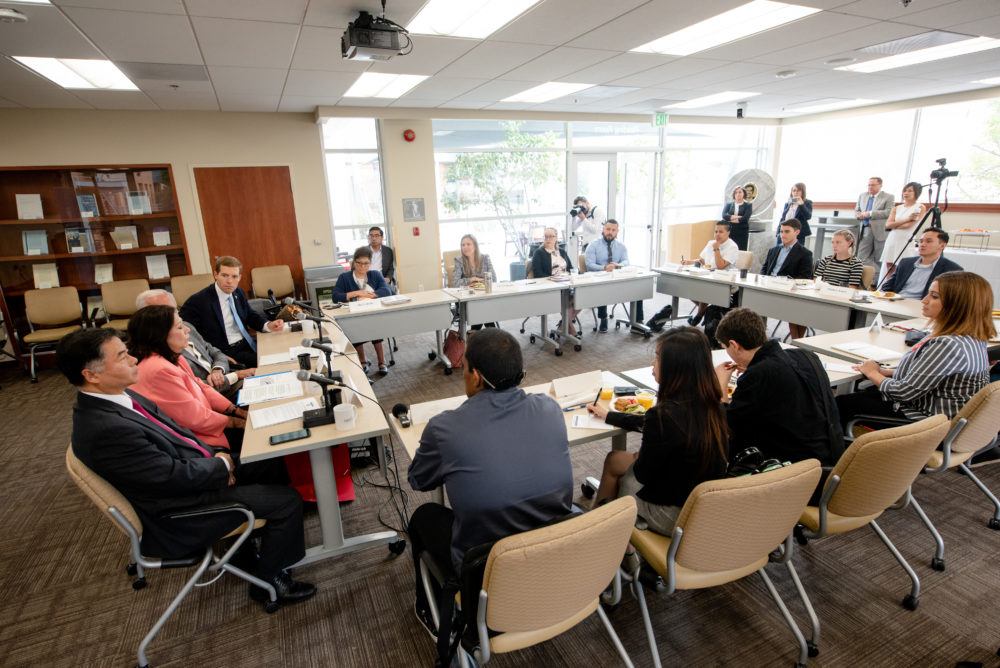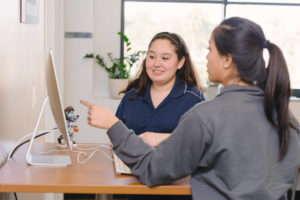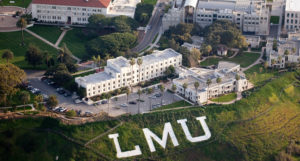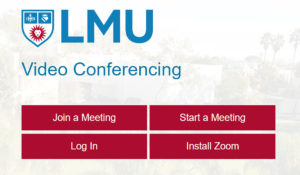Cabinet Corner is a periodic feature of LMU This Week where the university’s executive leaders share their perspectives with the community. The President’s Cabinet will provide updates on initiatives, policies, events, challenges, and areas of interest.
Michael Waterstone, senior vice president and dean of Loyola Law School, writes:
This is an incredible moment in time for LMU Loyola Law School. As we look forward with great anticipation to 2020, the law school’s centennial year, we also reflect on how generations of LLS students, alumni, faculty, staff and friends, alongside our colleagues university-wide, have contributed to making the world a better place.
We have made great strides in becoming a law school ready to take on the social justice and other legal challenges of the next 100 years. LLS has fused law, business and technology like never before to help achieve justice for the underserved of Los Angeles County, the state of California and beyond – creating the world we all want to live in.
In our efforts to close the crushing access-to-justice gap in our own community, we are fortifying our live-client clinic center. In January, the Loyola Social Justice Law Clinic will welcome its first executive director, who will grow the ability of our students, attorneys and staff to add to their already awe-inspiring numbers: 10,000 immigration law consultations by the Loyola Immigrant Justice Clinic; representation of 58 juvenile clients with issues intersecting criminal defense and education advocacy by our Center for Juvenile Law & Policy in the last year; 60,000 clients served by the Loyola Center for Conflict Resolution; six out of eight appeals won on behalf of indigent clients by students in our Ninth Circuit Appellate Clinic; and much more. Since the law school’s 1920 founding, our students have contributed more than 1,000,000 hours of pro bono community service – and counting.
Two of our clinics have been making headlines for their work to free the wrongfully convicted. Earlier this year, the Juvenile Innocence & Fair Sentencing Clinic secured the release of client Reggie DeAndre Mallard, who was wrongfully convicted of murder and conspiracy in 2003 and sentenced to 26 years to life in prison. On the same day, Loyola Project for the Innocent client Michael Tirpak walked out of prison after 25 years thanks to the LPI’s use of a new California law. Both clinics continue to press for justice on behalf of their clients, with the LPI securing an upcoming DNA hearing in the case of a high-profile client wrongfully convicted of murdering her husband. Their work is funded in part by a Department of Justice grant to pursue DNA testing.
Elsewhere, The Coelho Center for Disability Law, Policy & Innovation – a uniquely interdisciplinary program that intersects all seven LMU schools and colleges – is convening legislators and stakeholders to advance laws governing technological innovation to improve the lives of people with disabilities. They are coordinating a number of events this fall to ensure that the needs of people with disabilities are addressed in important upcoming elections. And to fulfill its mission of increasing the pipeline of lawyers with disabilities, The Coelho Center has engaged in high-level advocacy to encourage legislation limiting the California State Bar’s ability to review attorney-applicants’ mental health records.
Meanwhile, we continue to seek new ways to fuse technology, business and the law. Students in our Artificial Intelligence & Access to Justice Practicum are building a computerized platform to help low-income tenants and landlords deal with the initial phases of a lawsuit. This is thanks to a unique partnership with Legalmation, and builds on a “Hackathon” our AI class held last year, in which law students wrote code to help a property owner determine their legal exposure if someone were injured on their property.
Pedagogically, we are using technology to deliver a legal education in new and innovative ways. This year alone, we launched two online-only programs: the Online Graduate Tax Program and LLX Executive Education. With exclusive features that promote student interaction, both programs have attracted students who are now studying for an LLS degree from locations across the country.
Finally, I take pride in acknowledging the LLS faculty, who innovate in every way I can imagine. In 2018-19 alone, our faculty published 28 books and 91 articles and otherwise offered their efforts in public and private service. Their research has been cited in at least 1,000 articles, 139 treatises, 241 briefs, 108 decisions and seven influential American Law Institute Restatements. And multiple professors testified in the halls of the U.S. Congress on such important issues as reparations for slavery, voting rights and intellectual property.
As we close out 2019 and head into 2020, I want to conclude by thanking all of you across the university for your contributions this year. I continue to be inspired by the intellectual dialogue that reverberates among my colleagues in the seven LMU schools and colleges. While it is the law school that turns 100 in a few months, it is a reminder that we are all in this together. And we look forward to all of you joining in the incredible yearlong celebration we are planning.
Thanks, and Happy Thanksgiving!




